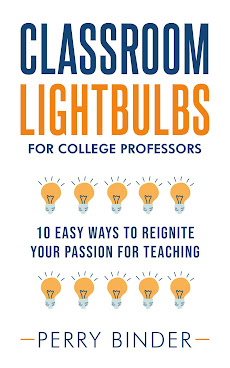I'm presenting this paper in the next few months...
The
Intersection of Ethical Decision-Making Modules and
Classroom
Response Systems in Business Education
Perry Binder, J.D.
Assistant Professor of Legal Studies
J. Mack Robinson College of Business
Georgia State University
Abstract
I would trade all of my
technology for an afternoon with Socrates. Steve Jobs, 2001
This paper supports
the idea that cutting-edge classroom technology tools can blend seamlessly with
“old school” teaching techniques, and produce a higher quality of student learning. More specifically, it discusses how Classroom
Response Systems (CRS) provide the crucial classroom ingredient for frank
ethical discussions in business courses: Anonymity. To teach ethics in business, I use a module
entitled Ethical Decision-Making in Contract Negotiations (business scenarios
fraught with ethical dilemmas), and ask questions which challenge students’ moral
codes and levels of empathy. With an old
school “raise your hand” feedback method, there is a high probability that
students will not provide candid responses (or they may not respond at all),
for fear of what peers and/or the professor may think. Alternatively, by utilizing CRS, I get
anonymous feedback and 100% class participation. However, there is an ongoing debate in
academia on whether Clicker (Hardware) Technologies should be utilized or the
emerging Free Application Technologies.
The former is an effective tool, yet it is expensive for students to
purchase and their professors may use different devices in class. On the other hand, all of my students bring a
smartphone, tablet, or laptop to class, thus permitting the use of free CRS
apps. These apps are easy to use and are equipped
with multiple choice, short answer, and true/false questions/polling
features. The results of each question
are instantly viewable by students on the classroom projection screen, whether
the professor uses a computer or a document camera to project data from a
smartphone or tablet. In sum, this
paper details my model to teach ethics, which is adaptable across the
curriculum. The model is divided into
three sections: (1) CRS student reaction multiple choice questions on ethics,
leverage, and empathy, prior to discussing the Ethical Decision-Making in
Contract Negotiations module; (2) Introduction and discussion of the module;
and (3) CRS post-module reinforcement multiple choice questions which assess
what students learned about themselves.
Finally, this paper addresses the classroom limitations of merging
traditional teaching methods with app technology, most particularly when the
technology fails.
.jpg)






.jpg)